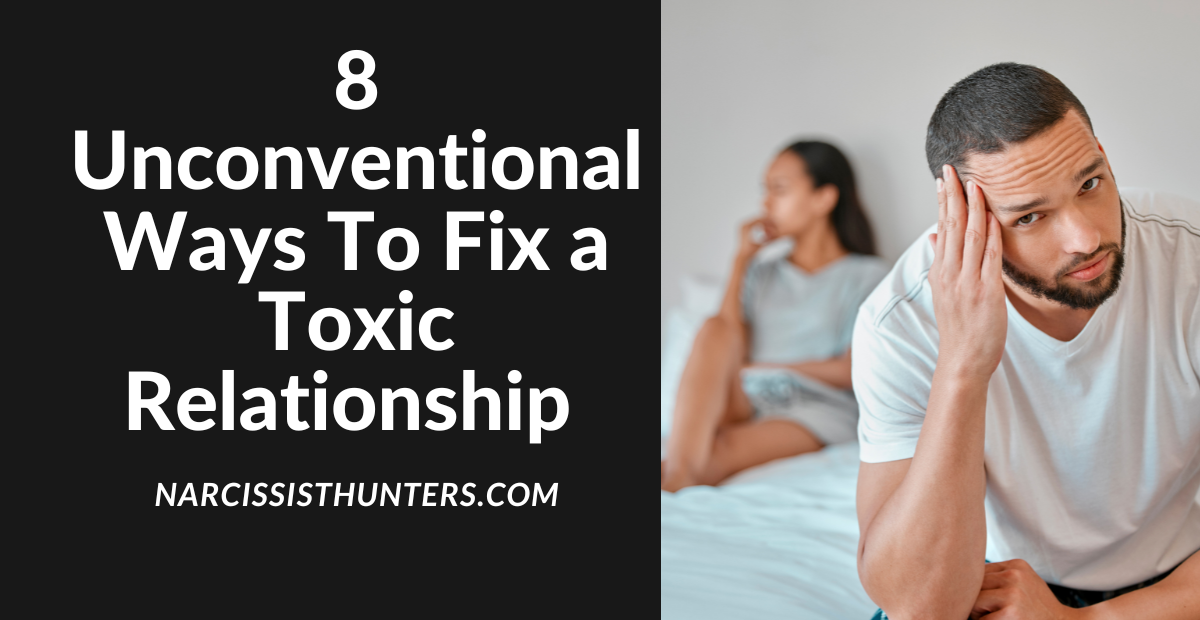Toxic relationships can have a profound impact on our emotional well-being, hindering personal growth and happiness. Conventional methods often fall short when it comes to fixing a toxic relationship. In this blog post, we will explore the definition of a toxic relationship, acknowledge the limitations of conventional approaches, and introduce unconventional ways to fix a toxic relationship.
By thinking outside the box and embracing alternative approaches, we can foster genuine connection, cultivate empathy, and create meaningful change in our relationships. This guide will benefit you to fix a toxic relationship effectively.
Definition of a Toxic Relationship
Before we delve into transformative approaches, let’s first understand what constitutes a toxic relationship. A toxic relationship is characterized by patterns of negativity, emotional manipulation, and a lack of mutual respect. It drains our energy, erodes our self-esteem, and impedes personal growth. Recognizing the signs of toxicity is the first step towards initiating change.
Acknowledging the Limitations of Conventional Methods to Fix a Toxic Relationship
Conventional methods, such as communication and compromise, are often touted as the go-to solutions for relationship issues. While important, they may not be sufficient to break free from toxic patterns.
Conventional approaches fail to address the underlying emotional wounds and power dynamics that perpetuate toxicity. It is essential to explore unconventional approaches that can facilitate a deeper transformation to fix a toxic relationship.
Unconventional Ways To Fix a Toxic Relationship
Here are some out of box ways to fix a toxic relationship:
1. Embracing Radical Honesty
Radical honesty challenges societal norms around communication. It involves fostering raw and vulnerable conversations, where both partners share their true thoughts and feelings without fear of judgment.
By creating a safe space for authentic expression, partners can develop a deeper understanding of each other’s needs and desires. This approach encourages open dialogue and promotes trust.
2. Practicing Radical Empathy
Radical empathy goes beyond sympathy and understanding; it involves actively putting yourself in your partner’s shoes. By making a conscious effort to understand their emotions and experiences, you can cultivate compassion and genuine connection.
This deeper level of empathy allows for a greater understanding of your partner’s perspective and can lead to healthier resolutions in conflicts.
3. Embarking on Individual Retreats
Taking time apart for self-reflection can be a powerful tool for transformation. Engaging in solitary activities and self-discovery allows individuals to reconnect with their true selves, identify personal needs, and gain clarity about the toxic patterns they contribute to.
By stepping away from the relationship temporarily, you can focus on personal growth and come back with newfound perspectives and insights.
4. Incorporating Mindfulness and Meditation
Cultivating present-moment awareness through mindfulness practices enables individuals to recognize and regulate their emotions. By practicing meditation for self-awareness and emotional regulation, partners can bring a sense of calm and clarity to their interactions.
Mindfulness can also be applied to conflicts, creating a space for compassionate communication and fostering healthier resolutions.
5. Exploring Non-Traditional Therapeutic Methods
Incorporating alternative therapies, such as art or music, can unlock new channels of self-expression and emotional healing. Engaging in couples’ activities like adventure therapy allows partners to build trust, break down barriers, and cultivate shared experiences.
By seeking out unconventional therapy modalities, you can gain fresh perspectives and innovative solutions to address the toxicity in your relationship.
6. Experimenting with Role Reversal
Stepping into your partner’s role temporarily can be an eye-opening experience. By immersing yourself in their shoes, you gain empathy and understanding. This process breaks free from personal perspectives and allows for a deeper grasp of your partner’s point of view.
Role reversal fosters mutual growth, strengthens bonds, and paves the way for lasting transformation.
7. Embracing Non-Sexual Intimacy
Rediscovering emotional intimacy without the sole focus on sex is crucial in transforming toxic relationships. Engaging in activities that foster connection beyond physicality, such as deep conversations, shared hobbies, or acts of service, allows partners to prioritize deep emotional bonds and genuine connection.
This shift in focus can rekindle the emotional spark in the relationship.
8. Redefining Relationship Expectations
Questioning societal expectations of a “normal” relationship is essential. Collaboratively designing a unique relationship structure that aligns with both partners’ needs and desires fosters a sense of ownership and empowerment.
By breaking free from societal norms, individuals can create a relationship that nurtures personal growth and genuine happiness.
Last Words
In conclusion, to fix a toxic relationship, requires an open-minded and flexible approach. By embracing unconventional methods such as radical honesty, radical empathy, individual retreats, mindfulness, non-traditional therapies, role reversal, non-sexual intimacy, and redefining relationship expectations, we can break free from toxic patterns and foster healthy, fulfilling connections.
Let us encourage one another to think outside the box, explore unique solutions, and prioritize personal growth and well-being on our journey towards transforming toxicity in our relationships. To fix a toxic relationship, follow this guide.
